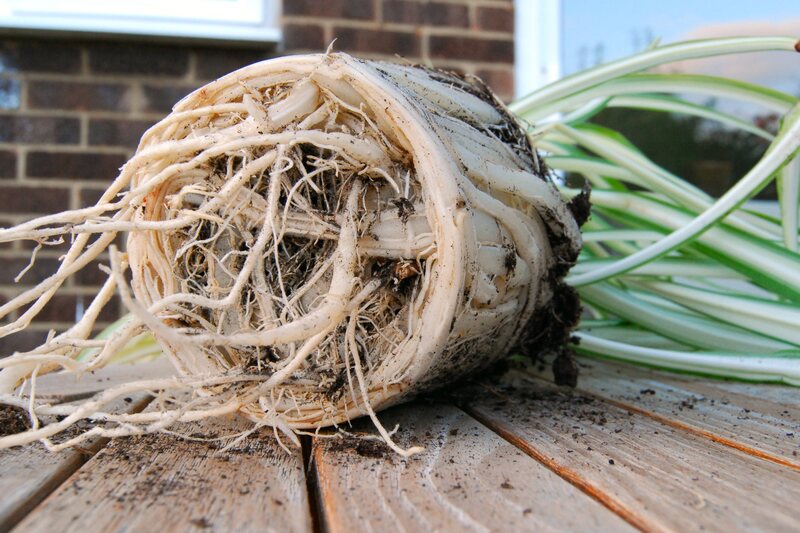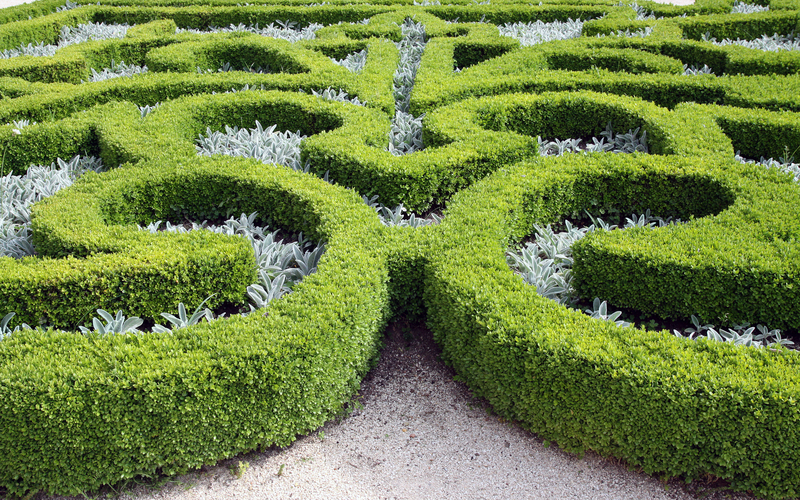From Organic Waste to Earthly Riches
Posted on 27/06/2025
From Organic Waste to Earthly Riches: Transforming Trash into Treasure
Imagine a world where piles of household waste transform into fertile soil, rejuvenating landscapes and fueling food production. What if there's wealth hidden within kitchen scraps and yard clippings? Welcome to the revolutionary concept of turning organic waste into earthly riches--a sustainable journey that's not only green but immensely rewarding!
What is Organic Waste?
Organic waste refers to biodegradable materials that come from living organisms. This includes anything that was once part of a plant or animal--think food scraps, coffee grounds, lawn mowings, leaves, egg shells, and more. Unlike plastic and metal, organic waste can naturally break down and be reintegrated into the environment.
- Food scraps like fruit and vegetable peels, bread, coffee grounds, and eggshells
- Yard debris such as grass clippings, branches, leaves, and plant trimmings
- Paper products like uncoated napkins, cardboard, and paper towels
- Animal waste from pets and farm animals (usually in controlled amounts)
Generally, anything that rots and came from an organic source qualifies as organic waste.

Why is Organic Waste a Problem?
At a glance, organic waste might seem harmless--a banana peel tossed aside quickly disappears, right? However, the sheer volume of organic waste generated daily creates significant environmental challenges:
- Landfills overflow with food and yard waste, occupying precious space.
- Decomposing organic materials in landfills release methane, a greenhouse gas up to 86 times more potent than carbon dioxide.
- Organic matter buried in landfills lacks oxygen and cannot break down efficiently, causing pollution and foul odors.
- Wasted nutrients that could be used to enrich soils and grow more food are instead locked away, lost forever.
But here's the good news--organic waste is actually earth's hidden treasure when managed correctly!
From Organic Waste to Riches: The Process of Transformation
The journey from organic waste to earthly riches centers around decomposing, recycling, and reusing these materials. Let's unravel the transformation process and the underlying science that makes it possible.
1. Collection and Segregation
The first step is to separate organic waste from other types of garbage. Many municipalities now offer "green bins" for kitchen and yard scraps. When you sort your waste, you:
- Reduce contamination of recyclables
- Provide cleaner feedstock for composting or anaerobic digestion
- Make the recycling of "black gold" (rich compost) possible
2. The Magic of Composting
Composting is the most popular and accessible method for converting organic waste into valuable resources. In simple terms, composting is the controlled decomposition of organic materials by microorganisms in the presence of oxygen.
- Hot Composting: Piles of organic waste are combined with the right balance of "greens" (nitrogen) and "browns" (carbon) and turned regularly to encourage microbial life. This leads to rapid decomposition at high temperatures.
- Cold Composting: Organic waste breaks down slowly over several months or years with minimal maintenance.
- Vermicomposting: Special composting worms (like red wigglers) eat the organic matter, turning it into rich castings (worm poop), which is incredibly fertile!
The result? Nutrient-rich compost--a dark, crumbly, sweet-smelling amendment that vastly improves soil quality. This is the "riches" gained from what would have been trash.
3. Anaerobic Digestion: Biogas and More
Unlike composting, which requires oxygen, anaerobic digestion occurs in airtight containers where microorganisms break down organic waste without oxygen. This process produces:
- Biogas: A mixture of methane and carbon dioxide that can be used to produce heat and electricity
- Digestate: A nutrient-dense slurry used as organic fertilizer for farms and gardens
This technology is especially popular at larger scales--such as municipal or farm operations--turning mountains of organic waste into renewable energy and fertilizer.
4. Industrial Innovations: Black Soldier Fly Larvae, Biochar and More
Innovations continue to emerge in the world of organic waste recycling:
- Black Soldier Fly Larvae: These fast-eating insects convert food waste into protein-rich feed for animals, while their frass (droppings) becomes fertilizer.
- Biochar: Organic matter is heated in low-oxygen environments to create a carbon-rich soil amendment that also locks away carbon for hundreds of years.
- Enzyme Technologies: Specialized microbes and enzymes break down stubborn organic matter in waste-to-energy plants.
The Earthly Riches: Benefits of Turning Organic Waste into Resources
The advantages of transforming organic waste into earthly riches are vast--affecting people, the planet, and profitability. Here's how embracing this transformation makes a positive impact:
- Soil Enrichment: Compost and digestate add vital nutrients and beneficial microbes to soil, improving its fertility, structure, and water-holding capacity.
- Waste Reduction: Diverting organic material from landfill slashes overall waste production and reduces the burden on municipal landfills.
- Methane Reduction: Processing organic waste in composting or digesters cuts methane emissions compared to landfill disposal.
- Food Security: Rich soils boost crop yields and resilience, supporting local food systems.
- Job Creation: Waste collection, composting, and biogas industries generate employment opportunities in both urban and rural areas.
- Renewable Energy: Biogas can power homes, vehicles, and businesses, replacing fossil fuels.
- Climate Change Mitigation: Sequestering carbon in compost and biochar helps offset greenhouse gas emissions.
Case Study: Urban Composting in Action
Many cities worldwide have embraced organic waste management as a solution for urban sustainability. San Francisco, for example, was one of the first major US cities to mandate composting, diverting hundreds of thousands of tons of food waste every year. The resulting compost revitalizes nearby farmland, creating a closed-loop system!
How You Can Turn Your Organic Waste into Wealth
Whether you're a homeowner, gardener, business owner, or farmer, you play a crucial role in turning organic waste into something valuable. Here's how to get started:
1. At Home
- Start a Compost Bin: Dedicate a small outdoor spot or use a compost tumbler for your kitchen scraps and yard waste.
- Vermicompost Indoors: If space is tight, worm bins easily fit in closets or under sinks.
- Separate Organic Waste: Use a countertop caddy to keep compostables out of the trash.
- Educate Your Family: Teach kids about what can and can't go into the compost.
2. In the Garden
- Apply Compost: Top-dress your plants with finished compost for a natural fertilizer boost.
- Mulch with Yard Waste: Shredded leaves and grass cuttings suppress weeds and conserve moisture.
- Make Compost Tea: Soak compost to create a nutrient-rich liquid for watering plants.
3. At Work or School
- Launch a Green Team: Encourage offices and cafeterias to set up organic waste collection programs.
- Partner with Local Composters: Arrange for pickup and processing of workplace food scraps.
- Advocate for Change: Petition for organics recycling laws in your community or workplace.
4. On the Farm
- Large-Scale Composting: Use windrows or industrial composters for agricultural by-products.
- Biogas Production: Install anaerobic digesters for animal waste and crop residues.
- Fertilize Fields: Apply compost and digestate to improve soil without synthetic chemicals.
Common Questions About Turning Organic Waste into Earthly Riches
What If I'm Worried About Smells or Pests?
Properly managed compost bins rarely smell bad. To avoid odors and flies, balance green and brown materials, keep the pile moist but not soggy, and regularly turn or mix to add oxygen. For extra peace of mind indoors, vermicomposting is virtually odorless.
Can I Really Make Money from Organic Waste?
Absolutely! Local governments, small businesses, and entrepreneurs have created thriving composting businesses, selling bulk compost, bagged soil amendments, and services like organic waste collection. Anaerobic digesters turn farm waste into renewable energy sold back to the grid.
Even if you don't sell compost, you can save money on fertilizers, soil conditioners, and disposal fees by recycling your own organic waste.
How Long Does It Take to See Results?
Composting times vary, but with good management, you can harvest garden-ready compost in as little as 2-3 months. Anaerobic digesters produce biogas in a matter of weeks. Even a slow, "cold" compost bin will yield riches with patience!
What Shouldn't Go Into Compost?
While almost all plant material is perfect for compost, avoid:
- Oily or fatty foods (attract pests)
- Diseased plants
- Pet waste (unless using special systems)
- Plastics, metals, glass, and synthetic chemicals
- Large bones or meat (unless using specialized methods)

The Future of Organic Waste: Infinite Possibilities
With global urbanization, pressure on food systems, and climate change looming, the urgency to rethink waste is higher than ever. Here's how the journey from organic waste to earthly riches is shaping tomorrow:
- Circular Economies: Cities and farms are integrating closed-loop systems, where organic waste from homes and restaurants returns to nourish food crops.
- Smart Technology: Sensors and AI optimize composting processes, maximizing efficiency and product quality.
- Incentives and Policy: More governments offer rebates for compost bins, tax breaks for biogas production, and even mandate organics recycling.
- Community Composting: Urban neighborhoods launch shared compost hubs, creating green spaces and local jobs.
- Waste-to-Protein: Insects and fungi turn food scraps into sustainable protein sources or animal feed.
Be Part of the Movement
From tiny backyard composters to high-tech bioenergy plants, the journey from organic waste to earthly riches is a revolution you can join today! By rethinking what we throw away, we foster healthier soils, cleaner air, less pollution, and stronger communities.
Transform your trash--unleash the potential of your peels, coffee grounds, and clippings. The gold beneath your feet is waiting!
Conclusion: Embracing a Richer, Greener Future
Converting organic waste into earthly riches isn't just about waste management. It's a holistic, sustainable approach to growing food, producing energy, and restoring nature's balance. Whether you're a city dweller, a suburban gardener, or a rural farmer, the power to create riches from waste is in your hands.
Start small. Grow big. Turn your organic waste into a legacy of abundance--for you and the earth.
Latest Posts
Defensive Strategies for Your Garden in Winter
Weather-Proofing Your Garden to Prevent Damage
Inspire Young Minds with a Kid-Centric Garden Design

